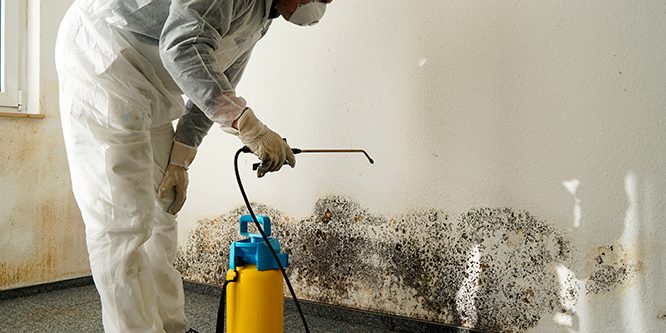Biohazard cleanup services are a specialized field within the cleaning industry that addresses hazardous materials and environments, often arising from incidents like crime scenes, accidents, or industrial accidents. These services go far beyond what standard cleaning companies offer, as they involve meticulous processes designed to ensure both health and safety. But what makes professional biohazard cleanup so different from regular cleaning? Let’s explore the key distinctions.
1. Handling Hazardous Materials
The most significant difference between professional biohazard cleanup and regular cleaning is the presence of hazardous materials. Blood, body fluids, chemical spills, mold, and other biohazards require specific management. These materials can spread HIV, Hepatitis B, and C.
Regular cleaning services, on the other hand, deal primarily with general dirt, dust, and grime. While they may use basic cleaning solutions to disinfect, they are not equipped or trained to handle dangerous pathogens, chemicals, or biohazardous waste. Biohazard cleanup professionals are specifically trained to work with these hazardous materials, ensuring they are properly contained, cleaned, and disposed of following strict safety protocols.
2. Specialized Equipment And Products
Professional biohazard cleanup services rely on advanced equipment and cleaning products that are far superior to the typical household cleaning supplies. These include industrial-grade disinfectants, high-efficiency particulate air (HEPA) vacuums, personal protective equipment (PPE), and specialized tools designed for safe handling and disposal of biohazardous waste.
For instance, biohazard cleaners use specific chemicals that are effective in neutralizing viruses and bacteria that could linger in contaminated areas. In contrast, regular cleaners may use standard cleaning agents that only address surface-level cleaning but fail to completely sanitize spaces contaminated with dangerous pathogens. The use of PPE like hazmat suits, gloves, and respirators is essential for biohazard cleanup professionals to protect themselves from exposure, which is something regular cleaning services would not typically need.
3. Training And Certification
A major differentiator between biohazard cleanup services and regular cleaning is the level of training and certification required. Professional biohazard cleaners undergo rigorous training to handle and clean biohazardous materials safely. They must understand the protocols for decontaminating spaces, proper disposal methods for hazardous waste, and how to use specialized cleaning tools and chemicals.
OSHA and NIOSH certification is required for biohazard cleaning personnel. Regular cleaning services, while typically knowledgeable in standard cleaning methods, do not receive the in-depth training necessary to deal with biohazardous waste or hazardous environments. This makes them ill-equipped for situations like crime scene cleaning, chemical spills, or infectious disease contamination.
4. Regulatory Compliance
Biohazard cleanup services must follow local, state, and federal hazardous material regulations. Biohazardous waste disposal is regulated by the EPA and OSHA in the U.S. Additionally, biohazard cleanup companies must follow regulations related to bloodborne pathogens, including the Bloodborne Pathogens Standard (29 CFR 1910.1030), which is enforced by OSHA.
These companies are also responsible for the proper disposal of contaminated materials, such as biohazardous waste, sharps (needles), and other dangerous substances. Failure to follow these rules could pose health and legal dangers. On the other hand, regular cleaning services are not held to these stringent standards and focus solely on routine cleaning tasks that do not involve hazardous materials.
5. Time Sensitivity And Emergency Response
Biohazard cleanup often requires immediate action to mitigate the risk of exposure to harmful pathogens. For example, after a violent crime or accident, blood and bodily fluids can spread rapidly and contaminate large areas. If left untreated, this can lead to the growth of bacteria and mold, further endangering the health of individuals in the space.
Professional biohazard cleanup teams understand the urgency and work efficiently to decontaminate the area quickly, often operating 24/7 to respond to emergencies. They follow strict timelines and procedures to prevent the spread of harmful substances. Regular cleaning services, on the other hand, typically operate on a set schedule and are not equipped to handle emergency situations that involve biohazards.
6. Discreet And Compassionate Service
One of the more unique aspects of professional biohazard cleanup is the discreet and compassionate nature of the service. Often, biohazard cleanup is required in the aftermath of traumatic events, such as suicides, violent crimes, or accidents. The teams working in these situations must show respect and empathy while maintaining privacy and confidentiality for the families or businesses involved.
Regular cleaning services, in contrast, usually deal with everyday cleaning tasks and do not require the same level of sensitivity or confidentiality. Biohazard cleanup professionals are trained to approach their work with the utmost care, offering support in emotionally distressing situations.
Conclusion
The primary difference between professional biohazard cleanup services and regular cleaning lies in the type of materials being cleaned, the equipment and training required, and the regulations that must be followed. While regular cleaning companies can handle routine tasks like dusting and mopping, they lack the expertise, certification, and specialized tools to deal with biohazards safely. Biohazard cleanup services, on the other hand, are equipped to handle hazardous waste, ensuring the safety of individuals and the environment while adhering to strict health and safety regulations. When dealing with biohazardous situations, always trust the professionals to protect your health and property.


